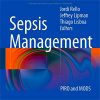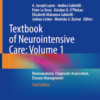Dexmedetomidine for Electroencephalogram in Children with Behavioural Disorders
link.springer.comIntranasal (IN) dexmedetomidine (DEX) is an effective sedative; its recovery time shorter than IV DEX and its favorable adverse events profile make this route a reasonable alternative, especially in pediatric patients with a low compliance to procedures.
Single-centre comparative observational study in the tertiary care centre of Padua, regarding all consecutive patients < 18 years old affected by behavioral disorders, who needed sedation for EEG recording. From 2018 to 2019 a group of children received IV administration of DEX, from 2020 to 2021 a second group of children received IN administration of the same drug. In both groups, the target of sedation was level 2, in accordance with the Pediatric Sedation State Scale (PSSS). Heart rate (HR), pulse oxygen saturation and blood pressure (BP) were registered. The quality of the EEG recordings and the satisfaction of caregivers were collected.

















